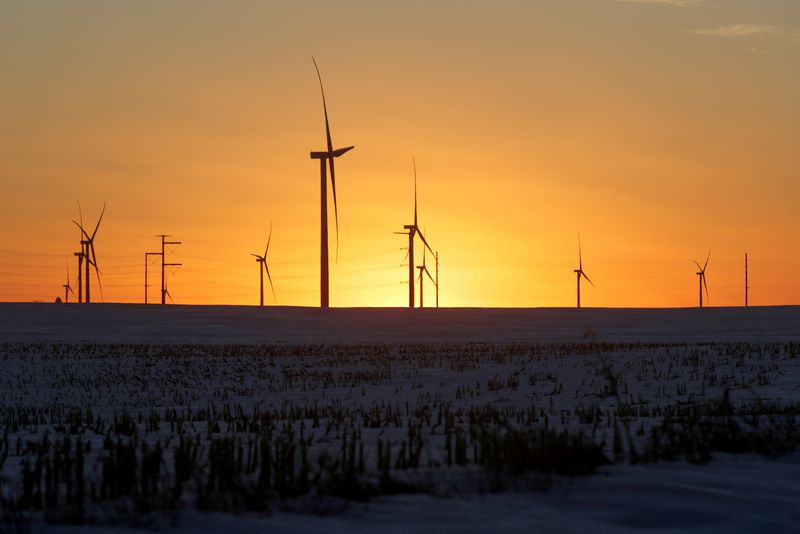(Reuters) - U.S. power consumption is expected to slip about 1% in 2023 from the previous year as milder weather slows usage from the record high hit in 2022, the U.S. Energy Information Administration (EIA) said in its Short-Term Energy Outlook (STEO) on Tuesday.
EIA projected that electricity demand is on track to slide to 4,000 billion kilowatt-hours (kWh) in 2023 from a historic high of 4,048 billion kilowatt-hours (kWh) in 2022, before rising to 4,062 billion kWh in 2024 as economic growth ramps up.
Less demand coupled with more electricity generation from cheap renewable power sources and lower natural gas prices is forecast to slash wholesale power prices this year, the EIA said.
The on-peak wholesale price at the North hub in Texas’ ERCOT power market is expected to average about $35 per megawatt-hour (MWh) in 2023 compared with an average of nearly $80/MWh in 2022.
As capacity for renewables like solar and wind ramp up and as natural gas prices ease, the EIA said it expects coal-fired power generation to be 17% less in the spring of 2023 than in the spring of 2022.

Coal will provide an average of 17% of total U.S. generation this year, down from 20% last year, the EIA said.
The share of total generation supplied by natural gas is seen remaining at about the same this year at 39%. The nuclear share of generation is seen rising slightly to 20% this year from 19% in 2022. Generation from renewable energy sources grows the most in the forecast, increasing to 24% this year from a share of 22% last year.